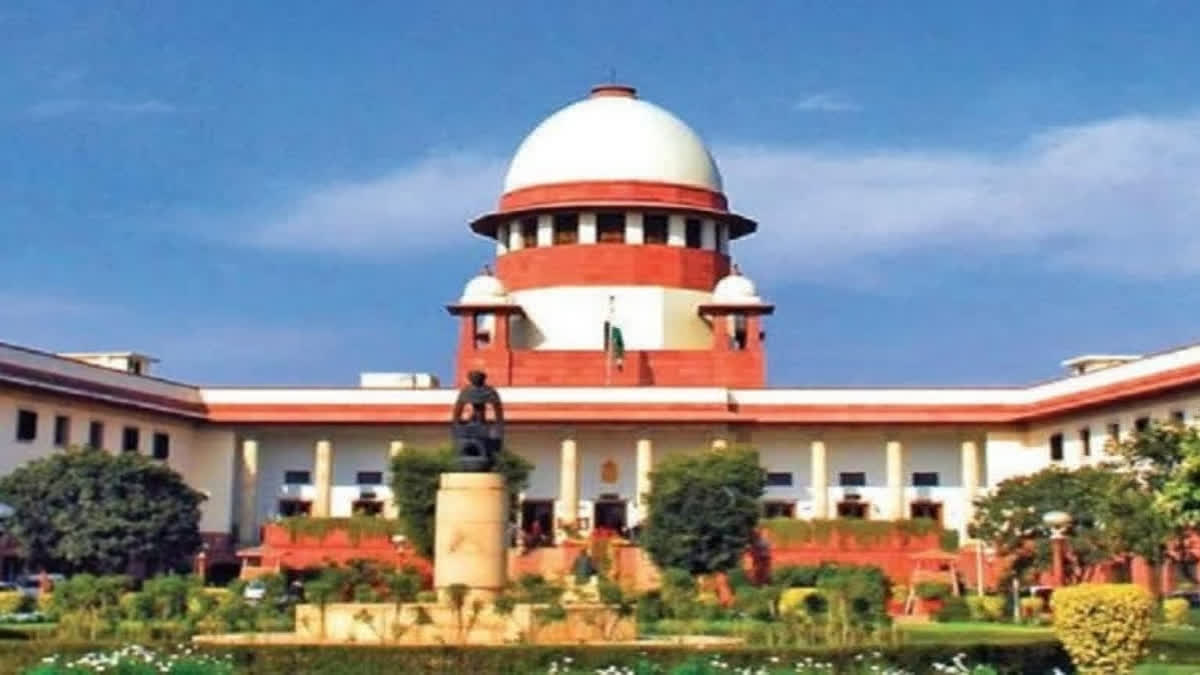New Delhi: The Supreme Court Wednesday allowed Centre to extend the tenure of the incumbent Chief Secretary of Delhi government Naresh Kumar by 6 more months.
A three-judge bench led by Chief Justice of India D Y Chandrachud and comprising justices J B Pardiwala and Manoj Misra said: “At this stage, bearing in mind, the provisions of the judgment of this court in constitution bench (May 11 judgment of the apex court) and the subsequent developments which have taken place resulting in enactment of the amendment to the GNCTD Act 1991, the decision of the Union government to extend the services of the incumbent chief secretary for a period of 6 months cannot be constructed to be violative of law of the constitutional distribution of powers between the Union and the government of the NCTD”.
“However, we clarify that analysis in this order is confined to prima facie evaluation of the case at the present stage without entering into any conclusive determination of the issues which are pending for adjudication before the constitution bench”, said the bench.
On May 11, a five-judge constitution bench of the Supreme Court ruled that it is ideal to hold that a democratically elected Delhi government should have control over its officers and the LG is bound by the advice of the elected government in everything other than public order, police, and land.
Today, the apex court noted that the post of chief secretary in the Delhi government is a post entrusted with significant functional responsibilities including overall administrative control and supervision over subjects which also stand excluded from legislative domain and executive powers of GNCTD.
The apex court was hearing a plea by the Delhi government against the Centre extending the tenure of the current chief secretary - Naresh Kumar, who retires this month - or appointing a new official. The challenge was in view of the contentious ordinance, which gave Centre control over posting of bureaucrats, and the Delhi government had contended that such appointments could not be made without it being consulted.
During the hearing on Tuesday, senior advocate A M Singhvi, representing the Delhi government, raised concerns about the extension being a unilateral decision, bypassing established procedures and highlighted that the apex court itself had ruled that the Lieutenant Governor was bound by the aid and advice of the Council of Ministers. However, the apex court pointed out that the Government of National Capital Territory of Delhi (Amendment) Act, 2023, was in force which grants the Centre power to appoint the chief secretary of Delhi. The bench reminded Singhvi that even though the Act is under challenge, it has not been stayed by the apex court.
During the hearing today, senior advocate AM Singhvi, representing the Delhi government, stressed that the judgments passed by the apex court in 2020 and 2023, on services in Delhi had said that the Centre had to make the appointment in consultation with the Delhi government. Singhvi, on the extension of the tenure of the chief secretary, submitted that the All India Services Rules clarify that extension is to be made by the concerned state government.
Solicitor General Tushar Mehta, representing the Centre, contended that extension of chief secretary is routine and pointed out 57 instances over the past decade and stressed that the authority to extend the tenure of chief secretaries lies with the central government.
The apex court noted that the power of extension can be exercised only by aid and advice of the state government and Union of India submitted that in a case involving a joint cadre, the expression "state government" must mean the joint cadre authority.
Singhvi insisted that in the 57 instances cited by Mehta, only one involved Delhi chief secretary which had happened during President's rule. Singhvi said the chief minister and the lieutenant governor can make a new appointment from a pool of candidates.
The apex court observed that the position for the national capital is different as chief secretary performs executive functions, and consequently, the restrictions which operate on ground as per the rules would not in a strict sense apply in relation to Government of National Capital Territory of Delhi (GNCTD).
Article 239AA stipulates that the legislative power of Delhi government is excluded with respect to specified lists and entries 1, 2 and 18 of list 2(public order, police and land).
The apex court noted that in the constitution bench judgment passed in May this year, this court by holding that the subject of services in Entry 41 falls within the domain of GNCTD has nonetheless clarified that this would not extend to excluded subjects (public order, police and land).
The apex court said it would not be possible not practical to divide functions of chief secretary or bifurcate them between those areas which fall within the domain of GNCTD or those which fall outside nor can such a bifurcation be attempted on numerical strength.
After hearing both counsel, the apex court held that the Centre has the power to appoint Delhi's chief secretary under the 2023 law on the administration of the national capital, while clarifying that the law is presently under challenge before a constitution bench.



